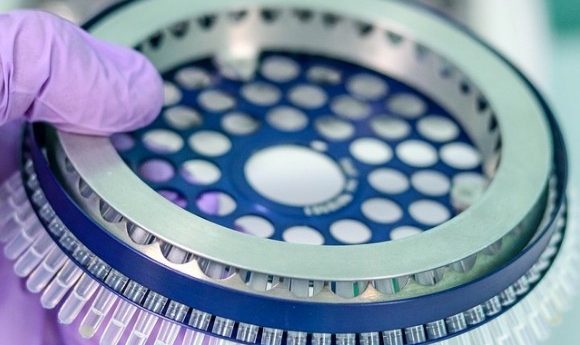PCR replicates could be less crucial than we think…

Researchers have demonstrated that single PCR reactions are sufficient for microbiome analysis.

In a recently published study in BioTechniques, researchers have reassessed the status quo by performing a direct comparison on single versus triplicate 16S PCR reactions across hundreds of samples in three independent laboratories.
“We wanted to find out if triplicate PCR was really necessary, or whether it was a myth passed down through generations of grad students from the dawn of amplicon analysis,” commented lead author, Rob Knight (University of California San Diego, CA, USA).
The team benchmarked single versus pooled-triplicate PCR across a broad range of sample types, using the DNA from a previous study on comparison of DNA extraction methods. Interestingly, single PCR reactions yielded significantly more reads than triplicate PCR reactions with fewer dropouts.
“This finding will considerably simplify amplicon workflows, and we think the new protocol will be widely adopted.”
Since high-level conclusions crossing environment types might obscure relationships, the team also tested whether the conclusions held for a separate set of agricultural samples. Again, the single PCR reactions yielded significantly more reads than triplicate PCR reactions but had a similar dropout rate.
The researchers were aware that the microbiology of the built environment has been a rapidly expanding topic of interest over the past decade but poses unique challenges for molecular analysis. In particular, samples tend to be contaminated with high levels of human DNA and have low bacterial biomass.
-
Cas9 as an easy alternative to PCR
-
Normalization of qPCR data
-
An introduction to high-resolution DNA melting analysis
These results demonstrate that with modern methods, pooling triplicate PCR reactions for 16S rRNA amplicon sequencing is more expensive and does not provide improvement over single PCR reactions. However, it is important to note that although these results hold true for the range of conditions tested here, there are so many variations in PCR techniques that this type of benchmarking effort should be validated for specific sample types and PCR protocols before a switch from established procedure is implemented for specialized protocols.
“This finding will considerably simplify amplicon workflows, and we think the new protocol will be widely adopted,” concluded Knight.
Follow the link to read the full paper: Triplicate PCR reactions for 16S rRNA gene amplicon sequencing are unnecessary.
Professor Rob Knight will be speaking as a keynote at the upcoming BioTechniques Online Event: Advancing Precision Medicine 2019, tackling host-pathogen interactions. You can register for the event here.
